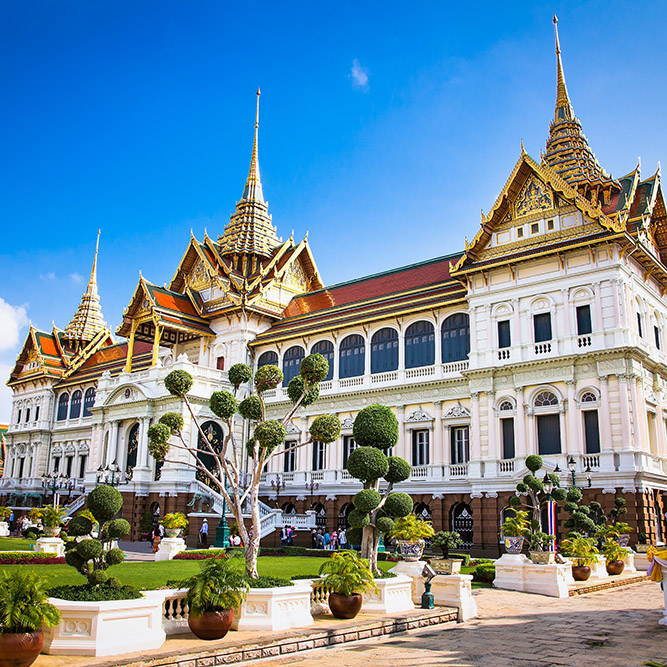Kratom grows naturally in the countries located in Southeast Asia. The tropical ecosystem of that region supports the necessary climate for the Mitragyna speciosa tree. The sultry weather conditions render a perfect biosphere to produce metabolites that have reached a peak state in mature kratom leaves. However, in recent years, the governments of those countries have made it their mission to criminalize kratom use and possession by the populace, and the reasons for those bans are sinister. For example, Thai politicians banned kratom to protect the revenue that the country made from taxing opium during World War II. In that instance, kratom legality had nothing to do with protecting citizens from a dangerous plant. Instead, the legislators did the opposite. More opiate addiction was profitable for the corrupt Thai politicians.
The government of Thailand has tried to backtrack from its past mistakes. The Thai government voted to make kratom a medical commodity available for possession with a medicinal license back in 2018. It passed the legislative branch with 166 votes in support of kratom legality and decriminalization. Not a single representative voted against it. However, the fact that kratom remained on the scheduled list of narcotics in the country created a barrier for the citizens to take advantage of the new law. Until the government removed kratom from the narcotics list, people could get arrested for having kratom in their possession. In January 2021, the National Assembly of Thailand voted to make kratom available for patients that need it.
Thai Government Votes to Move One Step Closer to Kratom Legality
The Thai House of Representatives came together to vote to remove kratom from the Thai government’s narcotics list. Instead, the legislators would make kratom a controlled substance for medicinal purposes. And that makes sense. The plant has been used as traditional medicine by the locals for centuries. So it is only fitting not to persecute them for using alternative medications that grow naturally around them.
The vote to remove kratom from the scheduled list passed the Thai House: 319 Parliament members agreed with its removal, but 7 of the government officials voted against it, and 3 of the leaders abstained from voting. The vote proved that the overwhelming majority were in support of the proposed law. Still, the legislation needs a vote by the Senate before becoming law. Should the Senate pass the bill, it would go into effect 90 days after getting published in the Royal Gazette.
Then the law would give the Thai Narcotics Control Board the jurisdiction to regulate the production, import, and export of kratom products to entities with state licenses for the medicinal product. Plus, the legislation of kratom would provide the ability for minors towork in the industry. Those caught breaking that law would face up to 2 years in prison and a monetary fine.
The Thai legislators also have a kratom bill in the works that lists additional guidelines for the marketing and advertising of kratom. The draft of that legislation bans mixing kratom with other stimulants or drugs, too.
Southeastern Asia Needs to Embrace Indigenous Plants
All the Southeast Asian countries need to stop forcing unethical laws of tyranny against their citizens. The prohibition of kratom leads to unnecessary crime and violence, and it all happens in the name of making nature an illegal commodity. So the move kratom legality in Thailand would offset some of the brutal gangs and organized crime syndicates that operate in the shadows, supplying the black market with kratom products. Unfortunately for residents in those countries, the statistics of violent acts perpetrated by gangs against citizens and police officers have risen over the years. Recently in Malaysia, border police had a shootout with a kratom smuggling operation that left one cop injured and his partner dead. The death of the border patrol officer was a tragedy. It was also unnecessary and easily preventable.
Nobody should get killed over the supply or purchase of kratom. The plant is not a dangerous drug. So we shouldn’t be shoving kratom into an illegal corner of society where criminals can profit from it. Hearing how criminal enterprises develop around kratom products in Southeast Asian countries warns us about the dangers of creating kratom bans in the US.
Six states have already made kratom an illegal substance in their borders. Yet, it won’t stop some citizens (in those states) from ordering kratom directly from Indonesian suppliers. People are still importing kratom products. But if they get caught, those people risk fines and imprisonment by state authorities. Some states are no better than undeveloped countries.
An Indonesian Ban Remains in Limbo
The removal of kratom from the narcotics list in Thailand gives the kratom industry in the United States some much-needed hope. Right now, Indonesia is the one country that legally provides the US with kratom imports. That’s because kratom is legal to grow and sell in that country. However, the Indonesian narcotics division has targeted the cultivation of kratom in the past couple of years. As a result, the Indonesian government has a proposed ban on kratom underway. According to the plans that are already in motion, kratom may become an illegal substance in the country by the year 2022. And unfortunately for kratom users, that’s only one year away.
Kratom advocacy groups and lobbyists have used their connections to speak with influential politicians over in Indonesia. So there is still hope. Besides, the Minister of Agriculture in Indonesia recently made an announcement declaring kratom as a medicinal plant. But the minister’s declaration does not give a clear picture of how the continual kratom operation in Indonesia would operate. Kratom seems set to become a medical substance in the region—as is the case in Thailand. But that would create an obstacle for people importing kratom from the country. Medicinal substances require a pharmaceutical license to purchase medical-grade plant material. Pharmaceutical companies would benefit from such an arrangement. But kratom vendors surely would not. And that might be what Big Pharma is banking on. Each day that passes, those drug companies get closer to developing kratom-derived prescription-strength medication.
The United States Continues Its Own Battle for Kratom Legality
Biotech companies in the US seek to isolate the molecular compounds in kratom to create a pill that a patient would need a prescription to take. But to do such, the action would give kratom opponents an additional argument for making the plant illegal. All isolated and synthesized compounds are much stronger than their natural counterparts. And the pills are sure to lead to dangerous outcomes. But rather than the pill getting blamed for the negative result, legislators always point out another culprit. They seek to make the plants that the drugs are synthesized from the scapegoat instead.
Still, the pharmaceutical industry has its eyes on the potential profits from the plant. So it will continue pushing forward with the plan regardless. And as the medical community gets closer to developing kratom pharmaceuticals, the researchers have slowly started shifting away from the concept of allowing kratom to remain a legal dietary supplement.
So it’s only a matter of time before the medical practitioners that the kratom community has cheered on for the past few years start to turn on the kratom supplement industry itself. And we should remain aware of that probability. The pharmaceutical industry works tirelessly to lobby representatives to give them sole rights to particular plants.
Mac Haddow, the Senior Fellow at the American Kratom Association recently tweeted the Food and Drug Administration (FDA) has doubled down on their misinformation campaign for the new legislative session. So we all have our work cut out for us.






